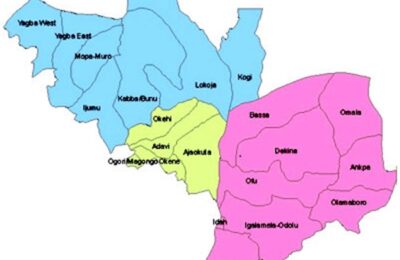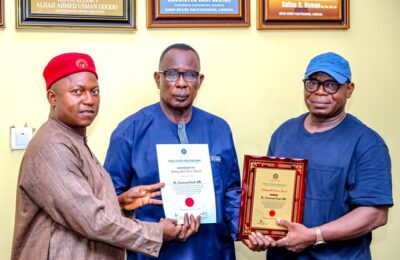By Musa Bakare.
Insecurity does not erupt overnight; it builds gradually, fed by silence, neglect, and weak response. The recent tragedy in Egbe, in the heart of Okunland, Kogi State, is not an isolated incident but part of a troubling pattern of violence that has been growing unchecked. Kidnappings, banditry, and senseless killings are no longer distant news, they are now bitter realities in our very peaceful communities.
For years, Okunland, known for its peacefulness and industrious people, has watched helplessly as insecurity crept in, starting with small-scale kidnappings along major roads and escalating into full scale banditry and cold blooded killings. The Egbe killing is therefore not a sudden explosion, but the climax of a dangerous build-up that has been ignored for too long.
Egbe town, historically known as the Jerusalem of Kogi because of its early missionary presence and contribution to education, has always been a centre of light. Yet, insecurity has now cast a dark shadow on its legacy. For months, residents reported strange movements in the forests surrounding the town. Villagers whispered armed men camping in the bush, extorting locals, and threatening farmers.
Rather than urgent action, what came was silence. Communities tried to defend themselves, but without strong security backing, their efforts were feeble. Gradually, criminal elements gained confidence. They began attacking travelers on the Ilorin–Kabba highway, then progressed to kidnappings for ransom, and now, outright killings.
The Egbe killing was not an accident; it was the result of accumulated negligence.
When insecurity is not confronted early, it metastasizes like cancer. Egbe’s tragedy should remind us that every kidnapping ignored, every bandit camp left untouched, and every plea from villagers unanswered eventually leads to bigger disasters.
The cost of inaction is not just in lives lost but also in the erosion of trust. Farmers can no longer go to their farms freely. Traders live in fear of traveling on highways. Young people begin to question the capacity of their leaders to protect them. When the people lose faith in both government and traditional institutions, the social contract collapses, and with it, peace.
The Yoruba adage says: “À kì í bẹru ikú kí a má le sọ́rọ̀” one must not be so afraid of death as to keep silent in the face of danger. Silence in the face of insecurity is itself complicity. The Egbe killing should therefore be treated not as an isolated tragedy, but as a wake-up call.
Security in Okunland can no longer be left to local effort alone. The Federal Government must urgently deploy special forces, police, DSS, and military to sweep the forests of Okunland where criminals hide.
The security in the West Senatorial District is worsening. Instead of mere statements, Federal Government must invest in community policing, technology-driven surveillance, and provide logistics support to security agencies.
Traditional rulers, community leaders, and youth associations must mobilize for intelligence gathering. Every suspicious movement, every strange face in the community must be reported. Security is everybody’s business.
Beyond force, the government must also address the economic roots of insecurity. Joblessness, rural neglect, and lack of social infrastructure create fertile ground for crime. Empowering rural communities is a weapon as strong as the gun.
Okunland has produced giants in politics, academia, and business, yet its people are bleeding under insecurity. This tragedy must challenge Okun leaders across party lines to rise above politics and defend their homeland. If they cannot unite to protect their people, history will not be kind to them.
It is not enough to build schools and hospitals if children and patients cannot reach them safely. Development without security is a wasted effort. The first duty of leadership is to secure lives and property.
The Egbe killing is a tragedy, but it must not be allowed to become just another headline. It should be the point at which Okunland and indeed Kogi State says, enough is enough.
If the lessons of Egbe are ignored, worse may follow. But if decisive action is taken now, history will record that out of tragedy came renewal.
A stitch in time saves nine. Let leaders act now before Okunland becomes another theatre of bloodshed in Nigeria’s long battle with insecurity.
– Musa Asiru Bakare writes from Lokoja, Kogi State.




